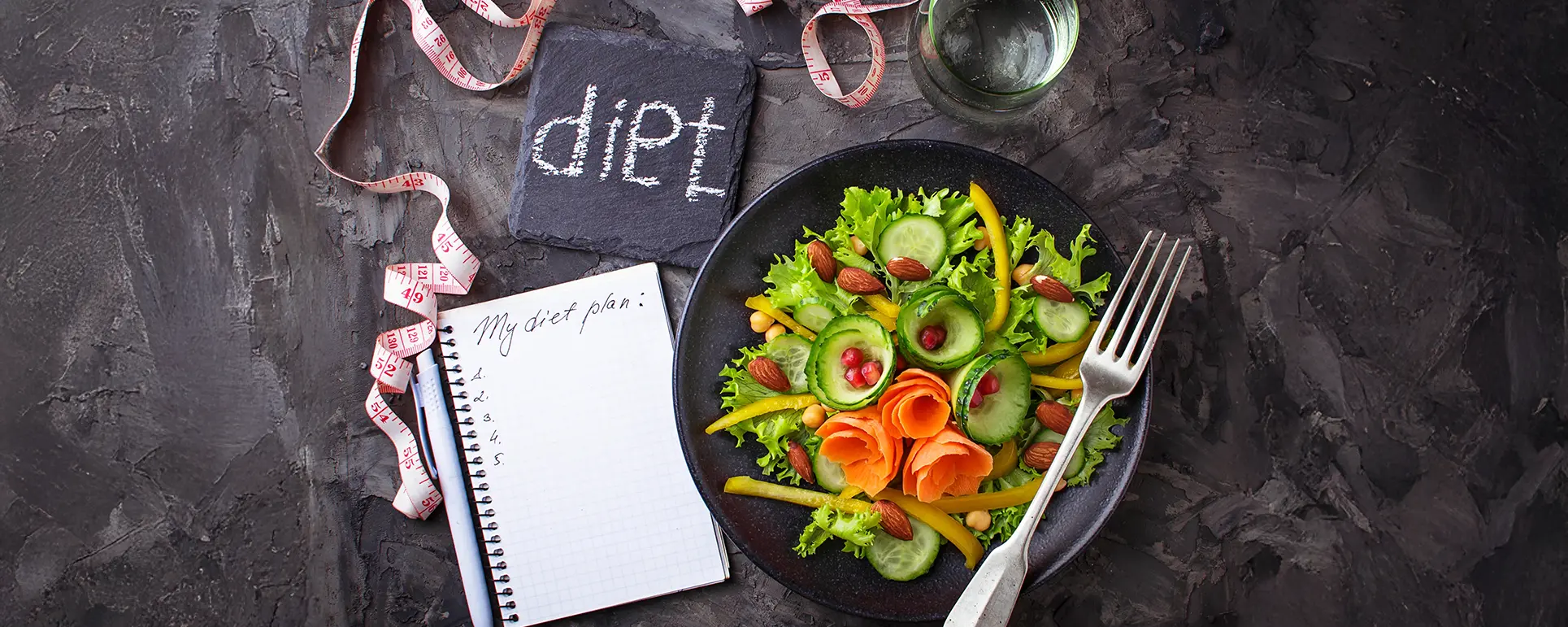You invest in skincare cleansers, moisturisers, serums but despite your efforts, your skin still feels unpredictable. Breakouts, dullness, redness what gives? While topical products play an important role, there’s another factor that’s gaining attention in the skincare world: your diet.
Yes, what you eat may be showing up on your skin, quite literally. Whether it’s that post-pizza breakout or the natural glow after a week of clean eating, more people are starting to notice the link between their plate and their face. But is this just a coincidence, or is there science to back it up?
Recent research has begun to uncover strong connections between nutrition, gut health, and skin conditions like acne, rosacea, and eczema. Dermatologists and nutritionists alike now agree your skin’s appearance isn’t just influenced by what you apply externally, but also by what’s going on inside your body. And one of the biggest influencers? The food you eat every single day.
Think of your skin as a reflection of your internal environment. A well-balanced, nutrient-rich diet can promote clearer, calmer, more radiant skin, while excess sugar, processed foods, and dairy might be doing the opposite. Even your gut microbiome the bacteria living in your digestive system plays a surprisingly powerful role in determining how your skin behaves.
In this article, we explore what the latest science says about the diet–skin connection. We’ll look at which foods are most linked to skin flare-ups, which ones may help calm inflammation and promote healing, and how simple dietary tweaks might make a visible difference to your complexion. so, if you’ve ever wondered whether your food habits could be affecting your skin, keep reading we’re about to break it all down.
What You Eat, Shows Up on Your Skin
Have you ever glanced in the mirror and asked yourself why your skin suddenly looks dull, irritated, or prone to breakouts despite using all the right skincare products? While stress, hormones, and environment certainly play a part, there’s another factor many people overlook: your diet. Yes, the food you eat daily could be having a direct impact on how your skin behaves and appears.
In recent years, more and more people have started to notice the subtle (and sometimes not-so-subtle) link between their eating habits and their skin health. You’re not imagining it those greasy takeaways, sugar-laden desserts, or endless cups of coffee might actually be showing up on your face in the form of breakouts, inflammation, or dryness.
It’s easy to assume that skincare begins and ends with cleansers, toners, and moisturisers. But in reality, the journey to healthier, more radiant skin often starts from within. The connection between nutrition and skin health is stronger than ever, with studies suggesting that certain foods can trigger or aggravate common skin concerns while others may help soothe, repair, and protect.
So, can your favourite lunchtime sandwich really cause acne? Is your daily cappuccino making your rosacea worse? And are those midnight snacks quietly sabotaging your glow? Let’s dig into the science behind the diet-skin connection to uncover what could be helping your complexion and what could be hurting it from the inside out.
You might be surprised to learn:
- That sugary snacks and drinks can trigger hormonal imbalances, which may lead to breakouts.
- Dairy products can sometimes overstimulate oil glands and worsen acne in some individuals.
- Processed and fried foods may promote chronic inflammation, which shows up on your face.
- Nutrient-dense foods like leafy greens, berries, and omega-3-rich fish can actually support skin repair and radiance.
- A poor gut microbiome often shaped by diet can show up as skin conditions like eczema, rosacea, or chronic dryness.
The Gut–Skin Connection: More Real Than You Think
It might sound surprising, but your gut and your skin are more closely connected than you think. The emerging field of research known as the gut–skin axis is shedding new light on how your digestive system directly impacts the health and appearance of your skin. And the more we learn, the more obvious it becomes: glowing skin doesn’t just start with skincare it starts in your gut.
At the heart of this connection is the gut microbiome the trillions of bacteria, fungi, and other microbes living in your digestive tract. When your gut microbiome is balanced and healthy, it helps maintain your immune system, reduces systemic inflammation, and can even regulate how much oil your skin produces. In short, a healthy gut lays the foundation for healthier, calmer, and clearer skin.
On the flip side, when your gut is imbalanced a condition often triggered by processed foods, excess sugar, chronic stress, or antibiotic overuse it can send inflammatory signals throughout the body. This internal imbalance doesn’t just stay hidden. It can begin to manifest externally in the form of:
- Acne – especially around the cheeks, jawline, or forehead
- Rosacea – facial redness and sensitivity linked to immune dysfunction
- Eczema or psoriasis flare-ups – related to inflammation and poor gut barrier function
- Dull, tired-looking skin – often a sign of poor nutrient absorption or digestive stress
There’s also growing evidence that an unhealthy gut can compromise your skin’s ability to heal and protect itself. This can make you more prone to irritation, dryness, and sensitivity even if you’re using the best products.
Simply put, if your gut is inflamed, your skin probably is too.
Fortunately, supporting your gut health doesn’t have to be complicated. A diet rich in fibre, fermented foods (like yoghurt, kimchi, and kefir), and antioxidants can help rebuild a thriving gut microbiome and in turn, support your skin’s natural glow.
Foods That May Worsen Your Skin

You’ve invested in quality skincare, built a consistent routine, and maybe even visited a dermatologist yet your skin still seems reactive, dull, or prone to breakouts. If that sounds familiar, it might be time to take a closer look at your diet. While everyone’s skin responds differently to various foods, scientific studies have repeatedly highlighted certain dietary culprits that tend to aggravate skin issues for many people.
Here are some of the most commonly researched food groups that may be working against your skin:
Refined Sugar
Sugar doesn’t just affect your waistline it can have a significant impact on your skin, too. When you consume sugary foods, it causes a rapid spike in your blood sugar levels, which in turn raises your insulin. High insulin levels can increase the production of sebum (skin oil) and trigger inflammation, both of which are known contributors to acne.
- Think of foods like: cakes, chocolates, sweetened cereals, sodas, energy drinks, pastries, and candy bars.
- Over time, frequent sugar consumption may also lead to glycation, a process that damages collagen and accelerates skin ageing.
Dairy Products
Milk, cheese, yoghurt, and other dairy-based foods can be problematic for some individuals, especially those who are sensitive to certain hormones naturally found in cow’s milk. These hormones may interfere with your own endocrine system, potentially triggering oil production and inflammation that leads to clogged pores and breakouts.
- Skim milk, in particular, has been associated with acne flare-ups in several studies.
- Even if you’re not lactose intolerant, your skin might still benefit from reducing dairy and switching to alternatives like almond, oat, or coconut milk.
Highly Processed Foods
Foods that come in boxes, wrappers, or fast-food containers often contain a cocktail of ingredients your skin may not appreciate refined carbs, artificial additives, preservatives, and unhealthy fats. These ultra-processed items can be highly inflammatory and low in essential nutrients your skin needs to thrive.
- Examples include: microwave-ready meals, instant noodles, potato chips, fried snacks, and packaged pastries.
- These foods can disrupt your gut health and blood sugar levels, both of which are crucial for maintaining a balanced, clear complexion.
Alcohol
That glass of wine or weekend cocktail might feel relaxing, but alcohol can take a serious toll on your skin especially if consumed frequently. It’s a diuretic, which means it dehydrates the body, often leaving your skin looking dry, tired, and less plump. It also causes inflammation, which can worsen redness and flare-ups, particularly in people with rosacea.
- Alcohol may also impair your liver’s ability to detoxify, meaning more toxins stay in your system and potentially show up on your skin.
- Some cocktails are also loaded with added sugars and syrups, making them a double threat to your glow.
Foods That Help Your Skin Glow
While some foods can disrupt your skin’s balance, the good news is that others can do the exact opposite helping it stay clear, calm, and beautifully radiant. These skin-friendly foods are rich in the nutrients, fats, and compounds your body needs to support skin health from the inside out.
Incorporating more of the following into your diet could give your complexion the boost it’s been waiting for:
Omega-3 Fatty Acids
These healthy fats are essential for maintaining the skin’s natural barrier and retaining moisture. Omega-3s also have powerful anti-inflammatory properties, which can help calm skin conditions like acne, psoriasis, and eczema. They may even help reduce sensitivity and redness caused by environmental triggers.
- Best sources include: fatty fish (like salmon, sardines, and mackerel), chia seeds, flaxseeds, and walnuts.
- Omega-3s also help prevent premature ageing by protecting your skin against sun damage and improving its elasticity and softness over time.
Antioxidant-Rich Fruits and Vegetables
Antioxidants help neutralise free radicals unstable molecules that damage skin cells and accelerate the ageing process. By eating a colourful variety of fruits and vegetables, you’re not only fuelling your body with vitamins and minerals but also protecting your skin at the cellular level.
- Look for: berries (blueberries, strawberries, raspberries), leafy greens (like spinach and kale), carrots, sweet potatoes, red peppers, and tomatoes.
- These foods are packed with skin-loving nutrients like vitamin C, beta-carotene, lutein, and polyphenols, which support collagen production and brighten your complexion naturally.
Probiotics
A happy gut often leads to happy skin. Probiotics are the “good” bacteria that keep your digestive system balanced and reduce internal inflammation. They play a key role in supporting your immune system and gut barrier both of which are crucial for maintaining skin health.
- Try adding more: yoghurt with live cultures, kefir, sauerkraut, kimchi, kombucha, and probiotic supplements.
- These can help reduce skin conditions triggered by gut imbalances, such as acne, rosacea, and dryness, by improving your gut-skin communication.
Water
It might seem simple, but hydration is one of the most essential and often forgotten steps for achieving glowing skin. When your body is dehydrated, your skin can look dull, flaky, and tired. Proper hydration helps maintain the skin’s elasticity, plumpness, and overall radiance.
- Aim to drink at least 8–10 glasses of water a day, more if you’re active or in a hot climate.
- You can also hydrate through water-rich foods like cucumbers, watermelon, oranges, and celery to supplement your water intake.
By consciously incorporating more of these skin-friendly foods into your daily meals, you’re not just fuelling your body you’re actively nourishing your skin from within. Over time, these choices can lead to a visibly smoother, brighter, and more resilient complexion.
What About Chocolate and Coffee?

Chocolate and coffee are two of the most beloved indulgences in many people’s daily routines but they’re also frequently blamed for causing skin problems, especially acne. So, what’s the real deal? Should you give them up completely for the sake of your skin? Not necessarily. Let’s break it down.
Chocolate: Friend or Foe?
Chocolate has long been accused of triggering acne, especially among teens and people with oily skin. But modern research paints a more nuanced picture. The truth is, not all chocolate is created equal. The skin-related concerns often stem not from cocoa itself, but from the sugar, dairy, and additives commonly found in commercial milk chocolates.
- Milk chocolate and white chocolate often contain high levels of refined sugar and milk solids, which can spike insulin levels, promote inflammation, and potentially contribute to breakouts.
- On the other hand, dark chocolate, particularly varieties with 70% or more cocoa content, may actually benefit the skin. It contains flavonoids, which are potent antioxidants that help fight free radicals and protect the skin from oxidative damage.
- In moderation, dark chocolate can even help improve skin hydration and blood flow, both of which are important for maintaining a healthy glow.
Coffee: Skin Wrecker or Skin-Safe?
Coffee is another common suspect when it comes to skin flare-ups. Some believe it causes dehydration, while others say it worsens conditions like rosacea or acne. But the reality isn’t so black and white.
- When consumed in moderation roughly 1 to 2 cups per day coffee is unlikely to cause skin issues for most people. In fact, it’s a natural source of antioxidants, particularly polyphenols, which help fight inflammation and protect skin cells from damage.
- Problems tend to arise when your coffee habit goes overboard or when your brew is loaded with sugar, artificial creamers, or flavoured syrups. These extras can spike blood sugar levels and trigger insulin responses that may negatively impact the skin.
- Coffee can also stimulate cortisol, your body’s primary stress hormone. For individuals who are sensitive to caffeine, this stress response may lead to increased oil production and inflammation both of which can contribute to breakouts.
- Additionally, overconsumption may interfere with sleep, which is another important factor in maintaining healthy, clear skin.
Should You Eliminate Foods for Better Skin?
When you’re struggling with ongoing breakouts, irritation, or flare-ups, it can be incredibly tempting to go all-in on a strict elimination diet in hopes of achieving clear, glowing skin. You might be ready to cut out dairy, gluten, sugar, caffeine or all the above overnight. But in most cases, this level of restriction isn’t necessary and can do more harm than good.
The key to skin-friendly eating lies in balance, not extremes. Our bodies and our skin are incredibly complex, and what triggers one person’s acne may have no effect on another’s. Instead of eliminating entire food groups, it’s often more beneficial to observe how your skin responds to certain foods over time and make gentle, informed adjustments based on your own needs.
Here’s what a more realistic, skin-conscious approach looks like:
- Start with awareness rather than restriction. Pay attention to your body’s signals. Does your skin flare up after a dairy-heavy meal? Do breakouts follow weekends of excess sugar or alcohol? These clues can guide your next steps.
- Track your habits in a food journal. Note what you eat and how your skin looks and feels in the days that follow. Over time, patterns may emerge that help pinpoint your personal triggers.
- Make small changes first. Instead of eliminating everything at once, try reducing one potential culprit like sugary drinks or processed snacks for a couple of weeks. See if your skin improves before making further changes.
- Don’t forget your overall lifestyle. Poor sleep, unmanaged stress, or a disrupted gut microbiome can all contribute to skin issues, and they may need just as much attention as your diet.
Most importantly, if you’re dealing with persistent or chronic skin issues, you don’t have to play detective alone. Working with a dermatologist, nutritionist, or functional medicine practitioner can help you get to the root of the problem faster without unnecessary guesswork or overly restrictive eating.
Remember, food is just one piece of the skin health puzzle. A sustainable, skin-loving approach is about nourishment, not punishment and every small, mindful change can help bring you closer to the results you’re hoping for.
Final Thoughts: The Bottom Line on Diet and Skin
Healthy skin isn’t just about what you apply it’s also about what you eat. Your diet plays a crucial role in managing inflammation, hormonal balance, and even hydration levels.
Reach out to us to book a consultation with one of our expert dermatologists and get tailored advice on how your diet could be affecting your skin.
References:
- Dreno, B. et al. (2018). The influence of diet on acne. Journal of the European Academy of Dermatology and Venereology, 32(5), 852–856. Available at: https://onlinelibrary.wiley.com/doi/10.1111/jdv.14835
- Del Giglio, A. et al. (2022). Nutritional strategies in acne management: An update. Nutrients, 14(11), 2203. Available at: https://www.mdpi.com/2072-6643/14/11/2203
- Bowe, W.P. and Logan, A.C. (2011). Acne vulgaris, probiotics and the gut-brain-skin axis. Gut Pathogens, 3(1), 1. Available at: https://gutpathogens.biomedcentral.com/articles/10.1186/1757-4749-3-1
- Katta, R. and Desai, S.P. (2014). Diet and dermatology: the role of dietary intervention in skin disease. Journal of Clinical and Aesthetic Dermatology, 7(3), 46–51. Available at: https://www.ncbi.nlm.nih.gov/pmc/articles/PMC4106357/
Barrea, L. et al. (2020). Nutrition and acne: an overview. International Journal of Dermatology, 59(3), 283–289. Available at: https://onlinelibrary.wiley.com/doi/full/10.1111/ijd.14788
